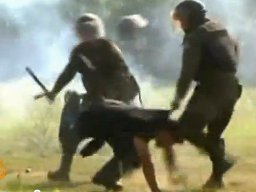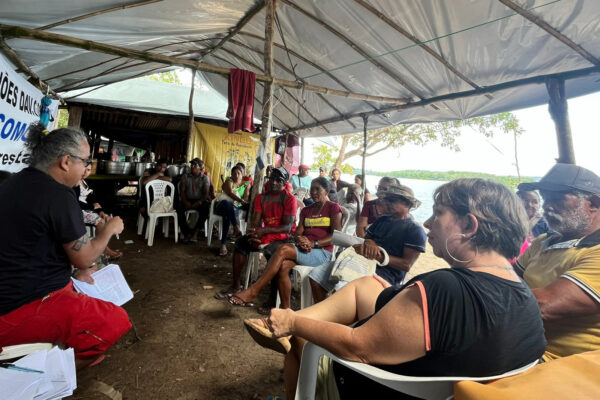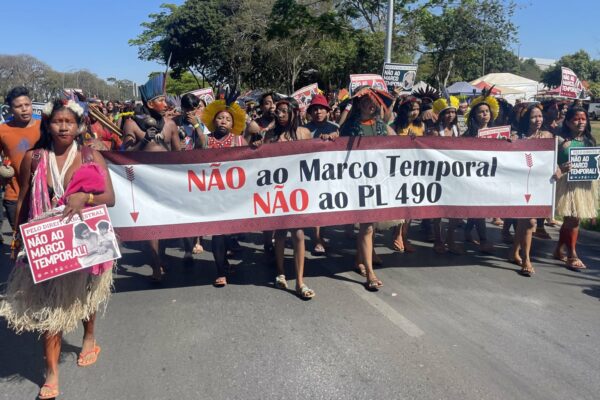Take Action Now!
Send a letter to the Bolivian Minister of Foreign Affairs urging the Bolivian government to curb tensions by immediately stopping the violent repression and by entering into good-faith dialogue with the marchers.
A protest march by Bolivian indigenous peoples turned violent on Sunday the 25th as 500 Bolivian police tear-gassed, fired upon with rubber bullets, and beat a group of hundreds of protesters.
Background:
Since mid-August, over 1000 indigenous demonstrators have been marching along a 500km road from the Amazon to La Paz, Bolivia’s capitol city. Their central concern is a governmental plan to build a road through the heart of the ecologically sensitive Isiboro Sécure National Park and Indigenous Territory (TIPNIS, in its Spanish acronym). The indigenous peoples within TIPNIS have not been consulted about the proposed road, as is required by the Bolivian Constitution. Studies anticipate that the road’s construction would lead to 2/3 deforestation of the park’s 1.3 million hectares within two decades, severely threatening the area’s 1100 species of flora and fauna.
For an overview of the issue, see “Controversial highway plan resisted by Bolivia’s indigenous peoples” by Bolivia Diary.
Violence:
As the marchers reached the town of Yucumo, roughly halfway along their route, they were stopped by pro-road community groups and police blockades. The government claims the police were there to stop a violent confrontation, however, by Sunday afternoon an estimated 500 police in riot gear forcibly dislodged the protesters from their encampment, shooting tear-gas canisters and using excessive force to load hundreds into trucks and buses. Initial reports alleged that one child died from asphyxiation due to the teargas, though concrete evidence has yet to emerge.
Though the police attempted to fly protesters back to their departure point in Trinidad, residents blocked them from doing so at two local airports. Some of the detained protesters have been released, reportedly against the will of the police. Others were regrouping in San Borja on Monday. Reports from the ground indicate that the marchers are planning to continue on their route, as solidarity protests are being carried out around the country.
On Monday night, President Morales held a 15-minute press conference, stating that he did not order the crack-down. He went on to rationalize why the road has been proposed, ending that the project would be suspended while he puts the question to voters in the two states, Beni and Cochabamba, through which the road would run. As of late Tuesday, field reports indicate that construction of the road have not stopped, as the Brazilian construction company OAS has not received official word from the government to suspend operations.
A concise report on the situation is available from the Andean Information Network, “Turning Point for Morales: Bolivian Police Repress and Detain Indigenous Marchers”.
Also, read this analysis by The Democracy Center, based in Cochabamba: “An Open Letter About The Current Situation in Bolivia”.
Demands:
- In the short term, the Bolivian police must stop the use of violent repression against marchers. They should allow for free movement of the demonstration, whether marchers return home or continue toward La Paz;
- All road construction activities should be suspended immediately;
- Ultimately, in regards to the proposed road through TIPNIS, the government should respect the right of all the indigenous peoples therein to free, prior and informed consultation, in accordance with the Bolivian constitution and international indigenous rights norms such as the International Labor Organization’s Convention 169 and the U.N. Declaration on the Rights of Indigenous Peoples. This is an important point, given President Morales’ proposal for a broader referendum in Beni and Cochabamba.
- Related to this is for the government to carry out the appropriate engineer and environmental studies of the project, including the study of alternate routes outside the protected area of the TIPNIS.














